Roderick Thomas has vivid childhood memories of days spent rampaging around Boulston Manor, his grandparents’ late-18th-century country home in Wales, playing chase with his sister and their cousins and exploring its grounds on horseback.
Rochelle Westropp has similar recollections of idyllic summers spent at The Warren, the West London riverside house she, her mother and her grandmother all grew up in.
“I remember having a rope tied around my middle and then being thrown into the river to learn to swim, which was how my mother also learned,” she said. “I remember sitting in the boat house and spitting cherry stones out into the water, and I remember the big tourist boats coming past and everyone waving at us.”
Both houses have been in their respective families for multiple generations and are steeped in tradition. But both are now for sale at a time when estate agents say that an increasing number of British families have come to terms with the fact that passing them down to the next generation is simply not practical.
“There have definitely been more of these houses coming onto the market or being sold privately recently,” said Carol Peett, managing director of West Wales Property Finders. She partly blames the pandemic: Many owners subsidized their country houses by running bed-and-breakfasts or renting them as wedding venues but Covid-19 put an end to this income stream.
“It’s terribly sad,” said Ms. Peett. “They simply cannot afford to keep them.”
In London, estate agent Nick Karamanlis, co-owner of Elliot Leigh Residential, said he was called to value a series of large Victorian and Edwardian houses during 2022, some of which had not been sold for decades. “People find it very, very difficult emotionally,” he said. “Some of them have never lived anywhere else.
“Most have been thinking about moving for years,” Mr. Karamanlis said, “but they just haven’t been able to face it and as they get to a certain age, they end up just using the downstairs of these lovely houses. However now with the high energy bills, a lot of those are starting to take action. I can see the pattern.”
Mr. Thomas’s grandfather, Birt Llewellin, purchased Boulston Manor in the 1950s after making his fortune in the family butter-churn business. When Mr. Thomas was around 30, his parents inherited the riverside house, which is in the Welsh county of Pembrokeshire, and lived there until his father died in 2002. At that point, he said, his mother realized that the 10-bedroom, 9,128-square-foot house was too large for her to manage alone. She sold to Mr. Thomas and his wife, Jules Thomas, so she could downsize. The Thomases, now in their early 60s, moved into the home in 2003.
A Glimpse of the Past
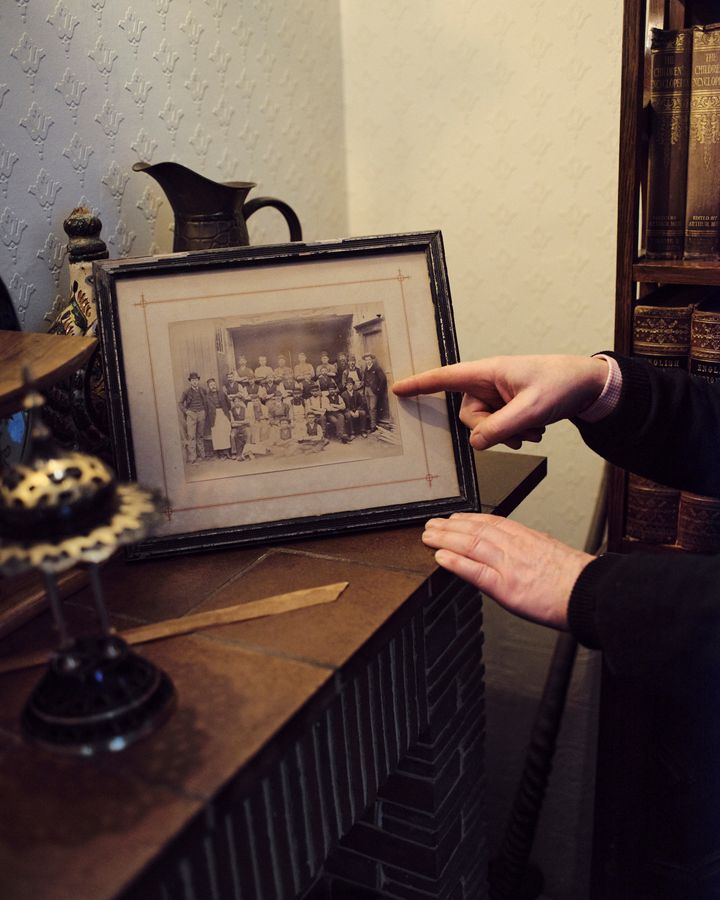

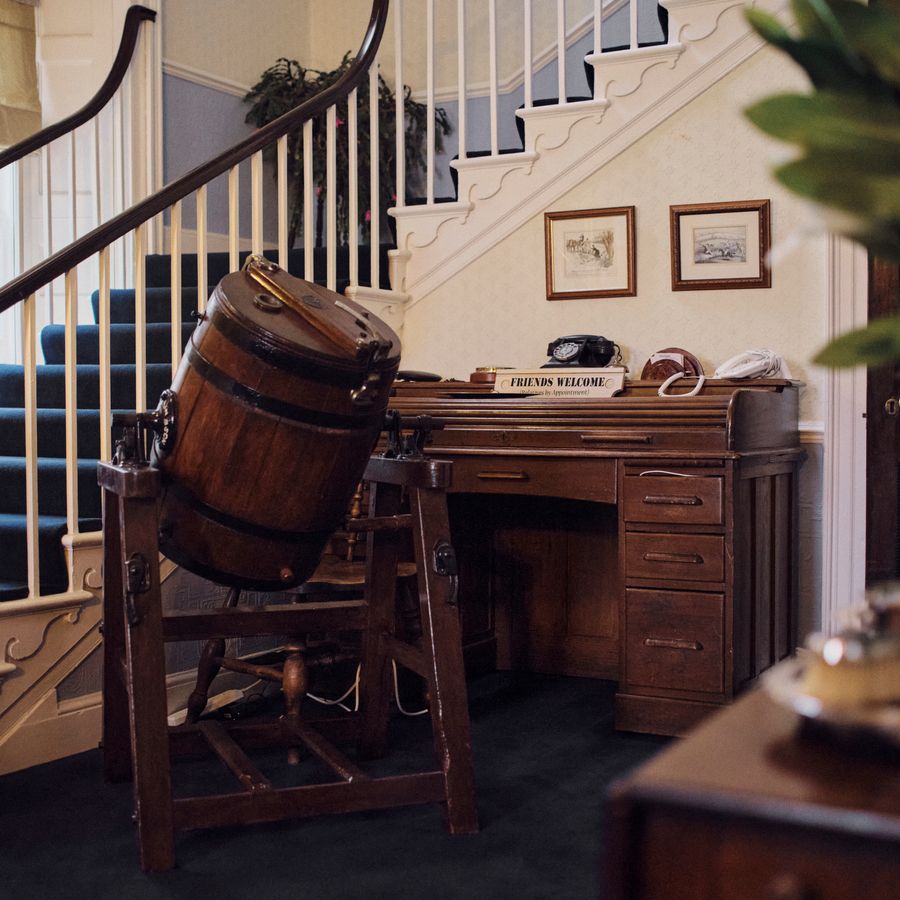
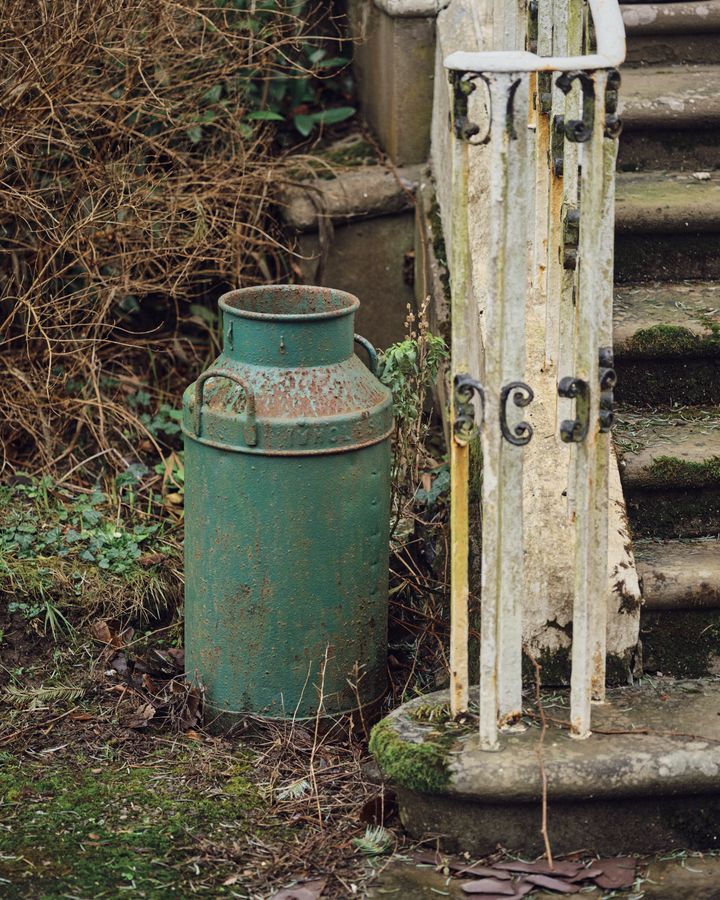
Family photographs at Boulston Manor, which has been owned by Roderick Thomas’s family since the 1950s; some of the milk churns designed by Mr. Thomas’s great-grandfather on display at the manor. Josh Adam Jones for The Wall Street Journal (4)
Now, after roughly 70 years in the family, the couple have decided to sell Boulston Manor, built in 1797, plus 42 acres of parkland and woodland, a three-bedroom cottage, a former schoolhouse and a barn. It is listed with Country Living Group with a guide price of $2.82 million.
Looking after the property and its grounds is a “pretty much full-time job,” said Mr. Thomas, a retired chartered surveyor. The couple don’t employ any staff and do all the work themselves. It is also too large for two people, and is expensive to run. Its oil and electricity bills total around $12,300 per year, said Mr. Thomas. Average energy bills in the U.K. increased some threefold between the start of 2021 and fall 2022, according to the Institute of Chartered Accountants in England and Wales.
To offset some costs, the cottage is rented out. Mrs. Thomas runs a four-bedroom bed-and-breakfast business at Boulston Manor. Before the pandemic, the couple also hosted weddings although they wound this side of the business down in 2022 in preparation for the move.
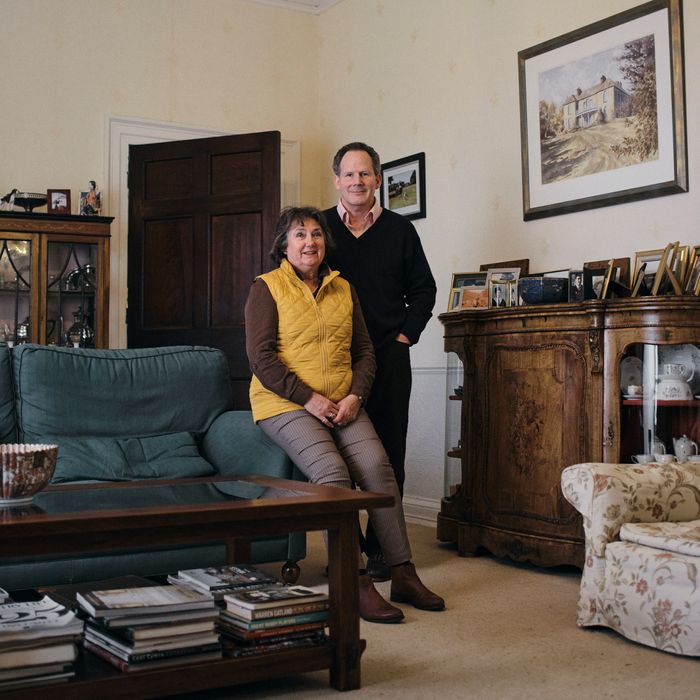
Jules and Roderick Thomas in the drawing room of Boulston Manor.
Photo:
Josh Adam Jones for The Wall Street Journal
But the real deciding factor here is family ties. The couple’s two grown sons were brought up in the south-coast county of Dorset, 200 miles from Boulston Manor, and consider it their home. Mr. and Mrs. Thomas want to be close to their sons, one of whom recently moved to Dorset and one of whom intends to soon. Their plan is to buy a much smaller place with around four bedrooms and a couple of acres for their rescued English pointer dogs.
The thing that worries Mr. Thomas most about the move is what to do with all the family memorabilia, which include photograph albums, the butter churns designed by his grandfather, and a grand piano. Some, he hopes, will go to a local heritage museum. He will also have to sell pieces of furniture he remembers from boyhood.
“We have been guardians of Boulston Manor for 20 years,” said Mr. Thomas. “It is always difficult letting go but the time has come to pass it on.”
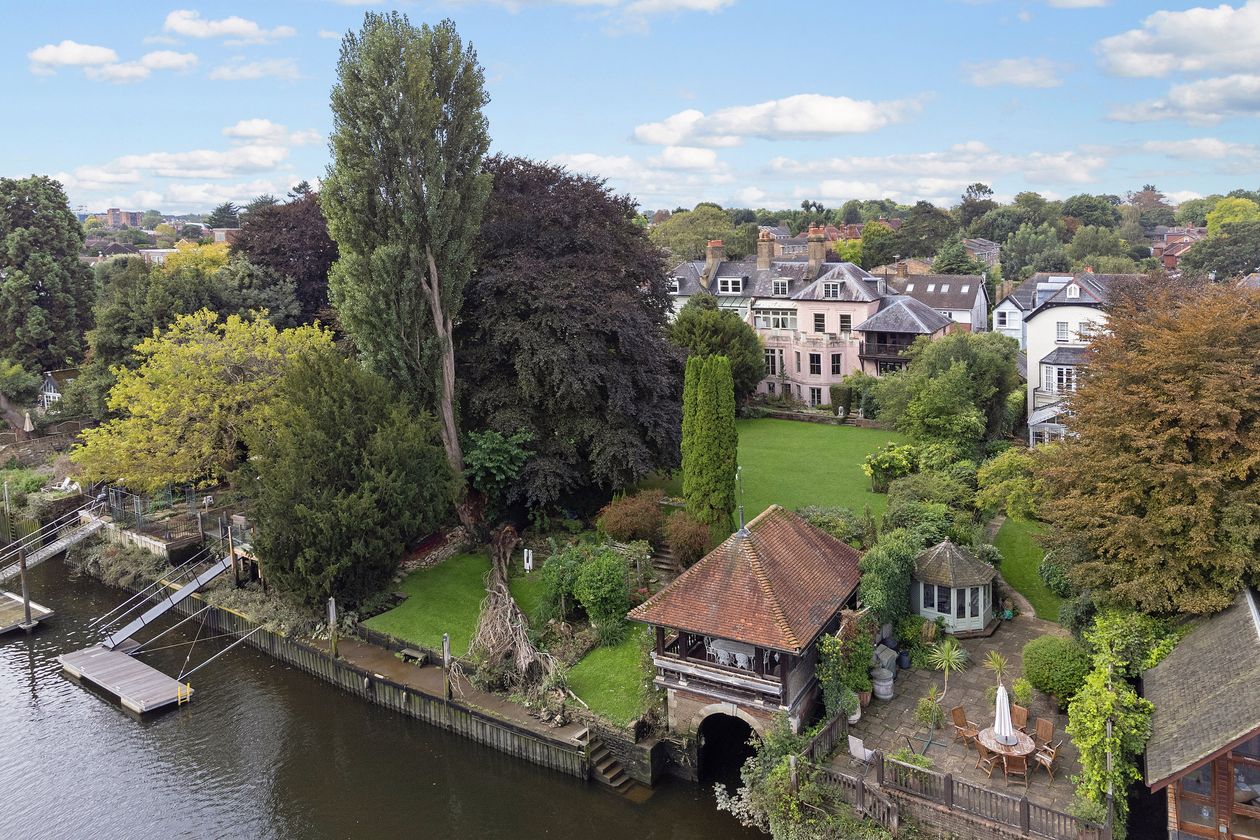
The Warren is a Victorian villa in the Strawberry Hill neighborhood, about 12 miles west of London’s center.
Photo:
Hamptons
Mrs. Westropp is feeling less fatalistic about the prospect of leaving The Warren. The Victorian villa was bought by her maternal great-grandfather in the early 20th century, and passed down to her grandparents and then her parents. She says she has been delaying the sale ever since her parents died in 2020.
“It is a place of sanctuary and peace which I have really enjoyed and benefited from,” said Mrs. Westropp. “I had the most amazing childhood.
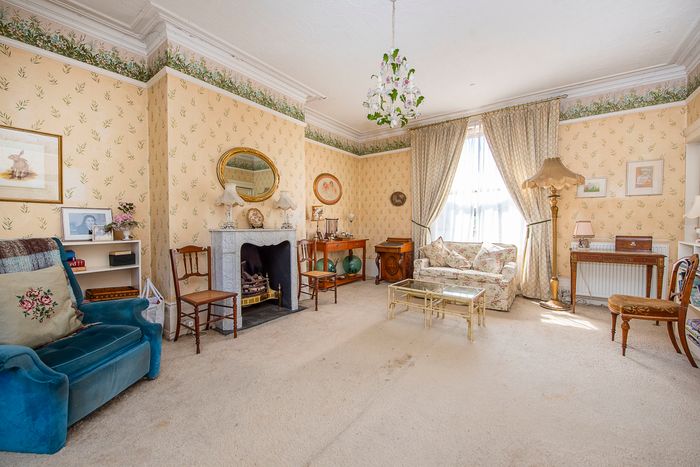
A living room at The Warren
Photo:
Hamptons
Mrs. Westropp, who is in her 40s and a full-time mother of three, still lives in West London. She has considered moving her family into the house, located in the Strawberry Hill neighborhood about 12 miles west of London’s center. But with her brother, who is the co-beneficiary, to consider, and the cost of running the roughly 5,548-square-foot, five-bedroom house, she has accepted that it is not feasible. There will also be inheritance tax to pay, charged at 40% of the entire value of her parents’ estate above $398,775.
“I know it sounds really ridiculous, and even saying it makes me cry, but I feel like the house is a very kind old lady who has still got a lot to give, and I don’t want to let her down,” said Mrs. Westropp. “I am determined never to become so emotionally attached to another house again, because this is a horrible feeling.”
The Warren, set by the River Thames with a backyard running down to the water and a 563-square-foot boathouse, is listed with Hamptons with a guide price of $5.52 million.
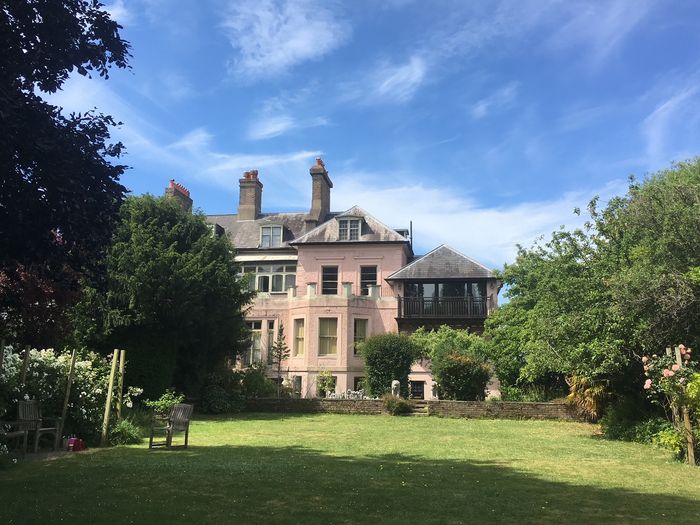
A rear view of The Warren, seen from its backyard
Photo:
Hamptons
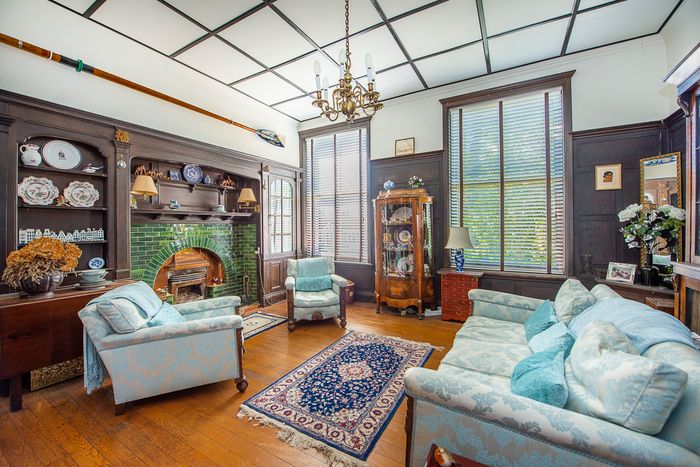
Another living room at The Warren has a green-tiled fireplace.
Photo:
Hamptons
Tushingham Hall has been Peter Moore Dutton’s home since he was 12 and has been in his family for more than two centuries, passed down from one generation to the next until it reached Mr. Moore Dutton’s mother in the 1960s.
Mr. Moore Dutton, now 73, has lived there ever since. He inherited the house in 1991 after the death of his father and went on to raise three children there with his ex-wife. Mr. Moore Dutton will, however, be the last of his line to be master, or mistress, of the landmark property, parts of which date from the 17th century, in the northern English county of Cheshire.
The hall, purchased by his great-great-great-grandfather Daniel Vawdrey in 1814, is for sale, listed with a guide price of $3.066 million with estate agents Jackson-Stops. The sale includes 27 acres of land, a two-bedroom lodge, coach house, barn, cottage, stables, outbuildings and a lake with a boathouse.
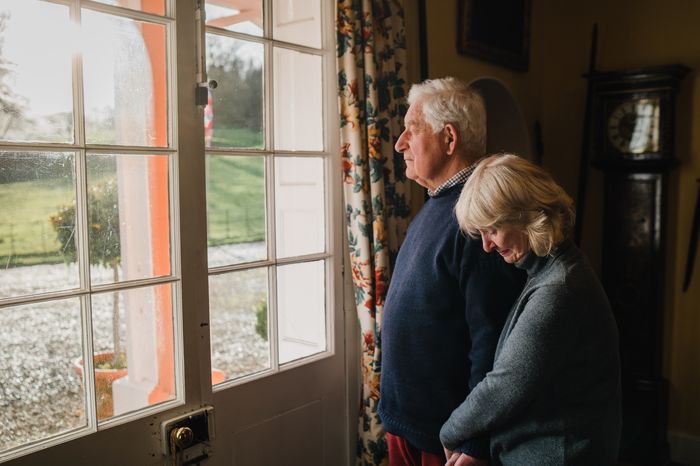
Peter Moore Dutton and his wife, Valerie, survey the grounds at Tushingham Hall.
Photo:
Lee Allen for The Wall Street Journal
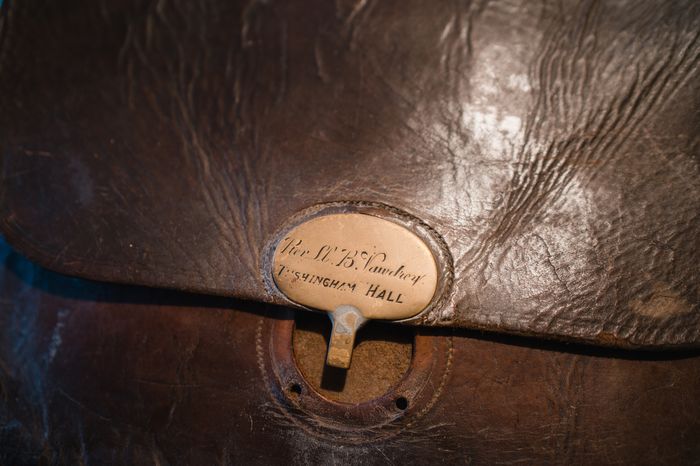
A postbag belonging to Peter Moore Dutton’s great-grandfather, which he believes dates from around 1900.
Photo:
Lee Allen for The Wall Street Journal
At the start of 2022, Mr. Moore Dutton, who ran a building equipment rental company until he retired, came to the conclusion that the physical and financial drain of maintaining the eight-bedroom, three-bathroom home with its extensive grounds had become too much.
“It has caused us quite a lot of heartache but the truth is we are rattling around in this house, and we would like to have some cash to cover us as we get older, and possibly need care,” said Mr. Moore Dutton, who remarried in 2018.
The couple manage the roughly 3,262-square-foot house and its 100 acres of grounds themselves. They plan to sell the land not included with the hall separately.
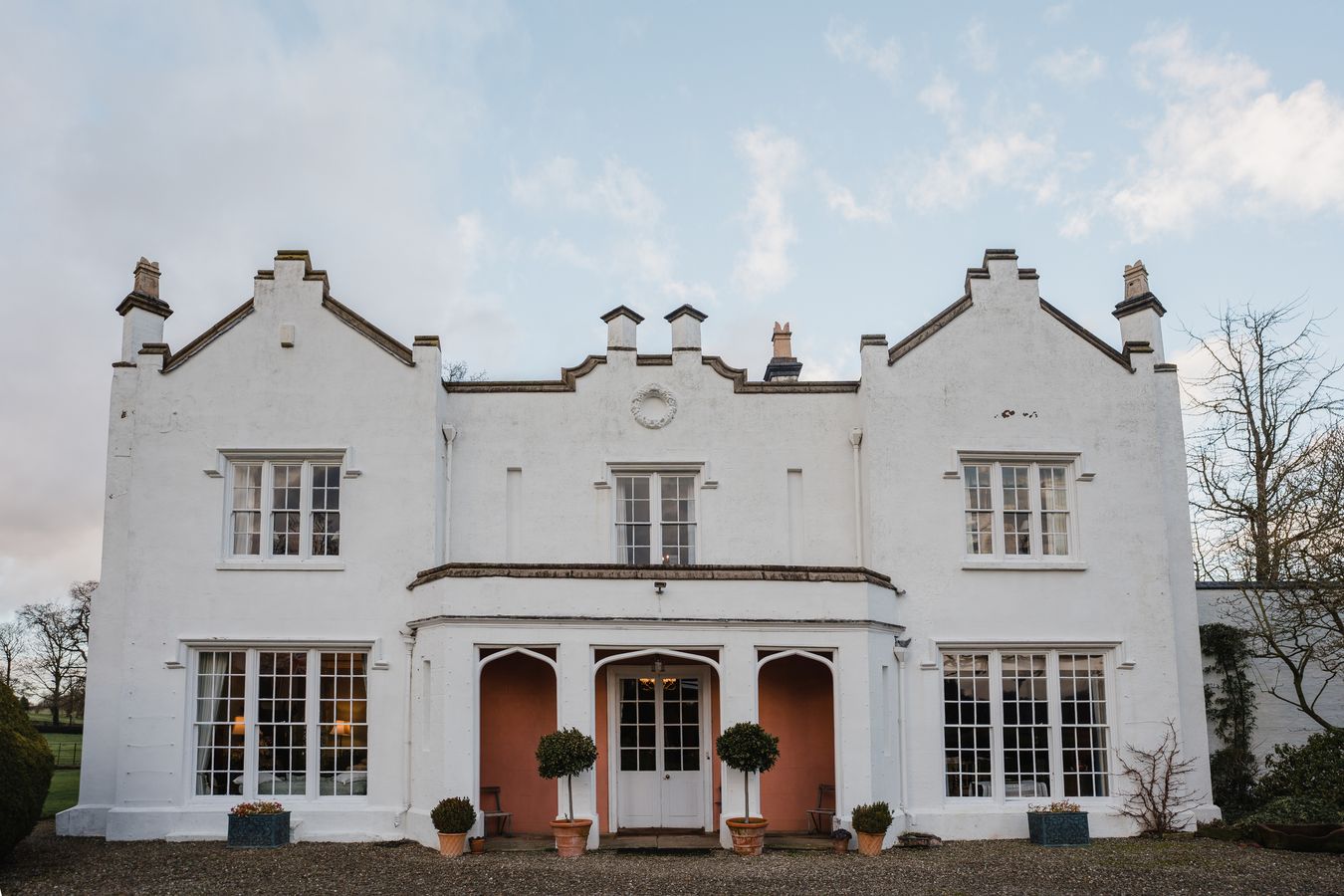
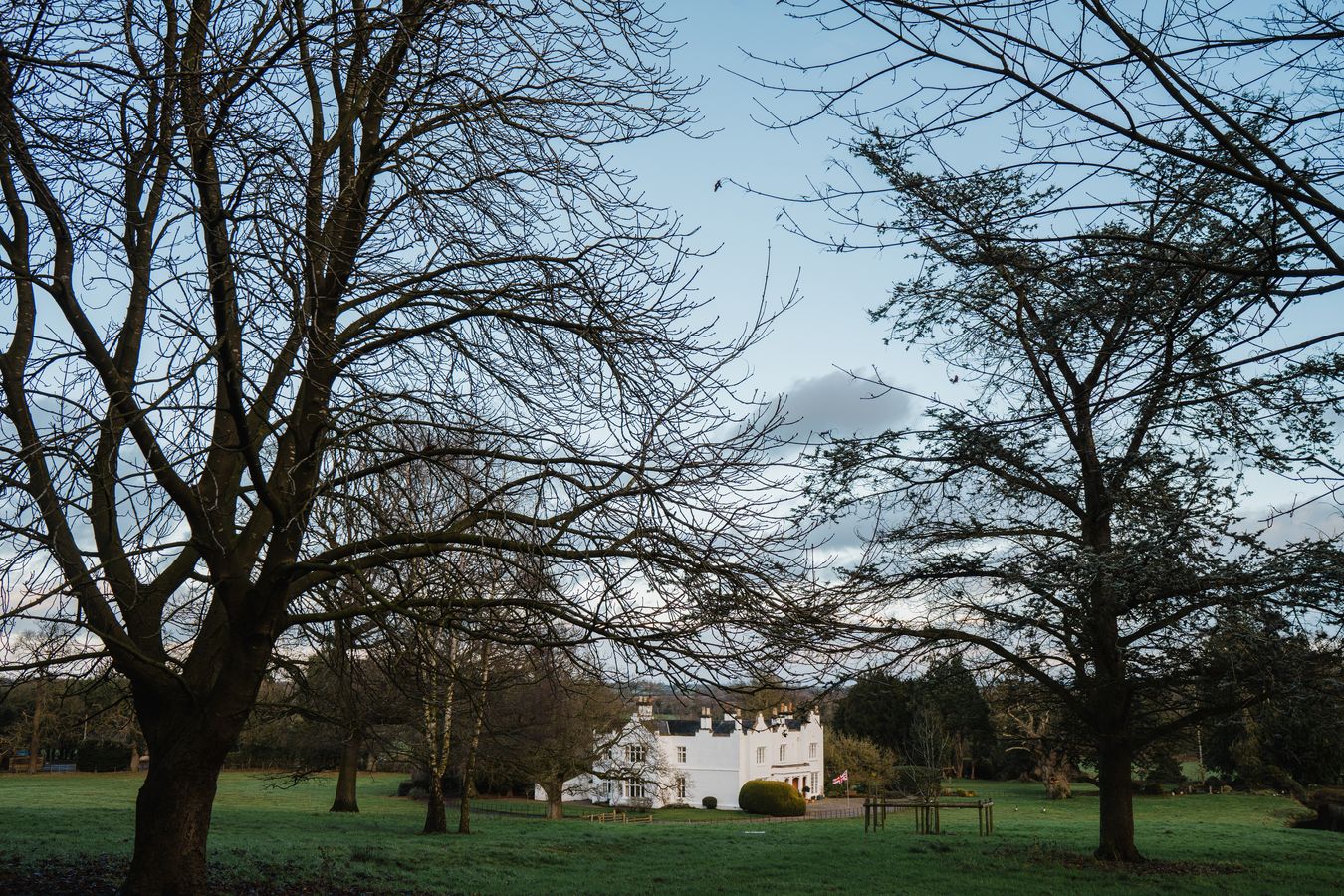
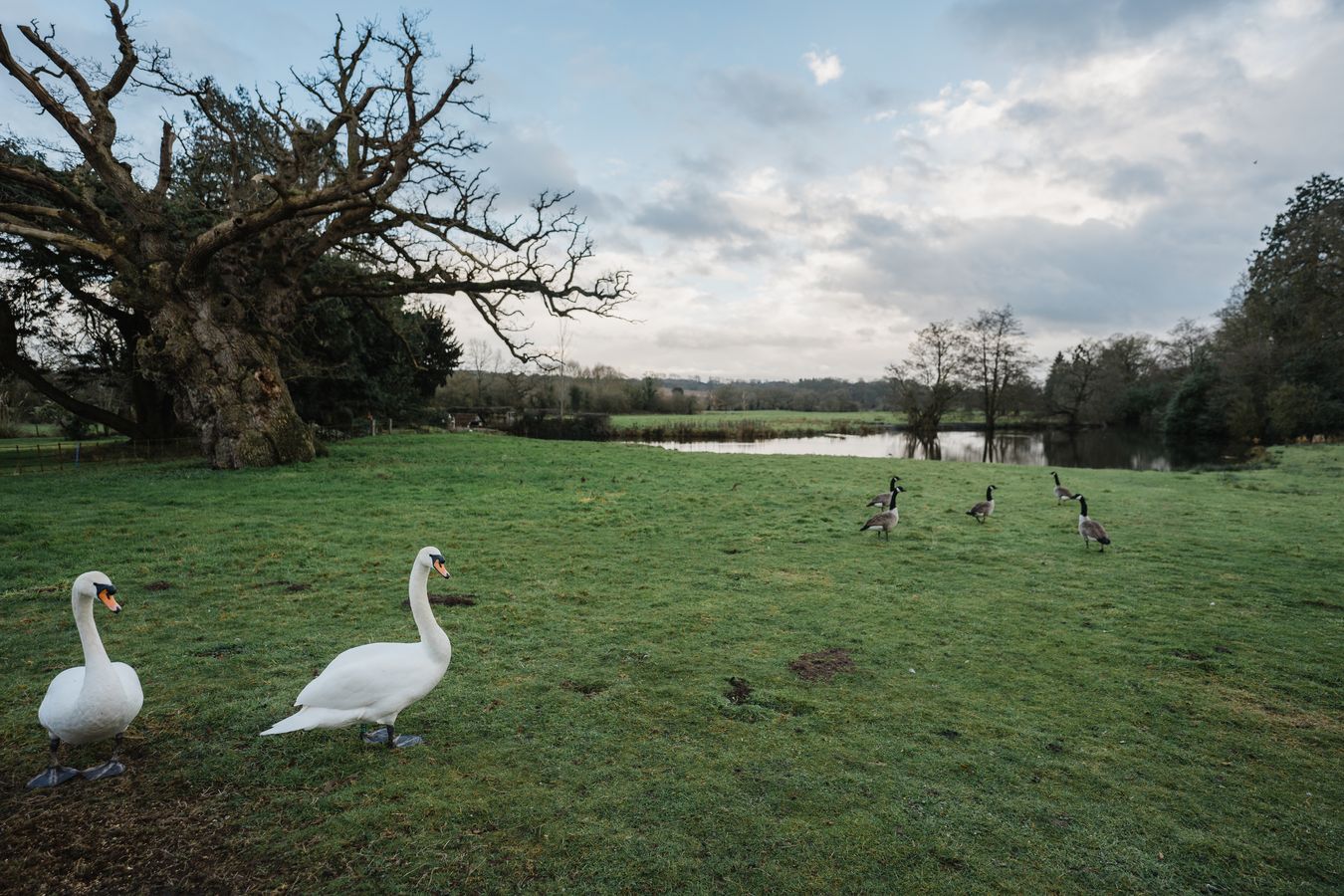
Tushingham Hall has been Peter Moore Dutton’s home since he was 12. Lee Allen for The Wall Street Journal (3)
“Running a small estate like this is a question of making a small fortune out of a larger one,” said Mr. Moore Dutton. “The children are not that interested and they all work elsewhere, so I started wondering, when we die, who is going to sort it all out? My son has said he is so pleased we are doing this because it would be such a nightmare for the children to deal with.”
Mr. Moore Dutton would like to move to a smaller house with far less land and is realistic about the prospect of leaving his home of some 60 years. “We have had to bite the bullet, and it might be a weight off my shoulders,” he said.
Mr. and Mrs. Moore Dutton in the kitchen at Tushingham Hall, accompanied by their dog, Puddle
Lee Allen for The Wall Street Journal
The dining room at Tushingham Hall
Lee Allen for The Wall Street Journal
The home’s “curiosity room”
Lee Allen for The Wall Street Journal
Lee Allen for The Wall Street Journal
The tiled entrance hall
Lee Allen for The Wall Street Journal
A living room
Lee Allen for The Wall Street Journal
Some 150 miles south, near the village of Long Ashton in the county of Somerset, stands Gatcombe Court.
Matthew Clarke’s grandfather Cyril, a prominent provincial lawyer, moved into the 10-bedroom Elizabethan-style stone manor in 1922. He initially leased the property, before buying it in 1947. In the 1950s, he decided to move out and allow Mr. Clarke’s parents, recently married, to move in.
As a child, Mr. Clarke, the youngest of five children, vividly remembers the fun of sleepovers with friends less accustomed to the idiosyncrasies of an ancient house, parts of which, he said, date from the 13th century.
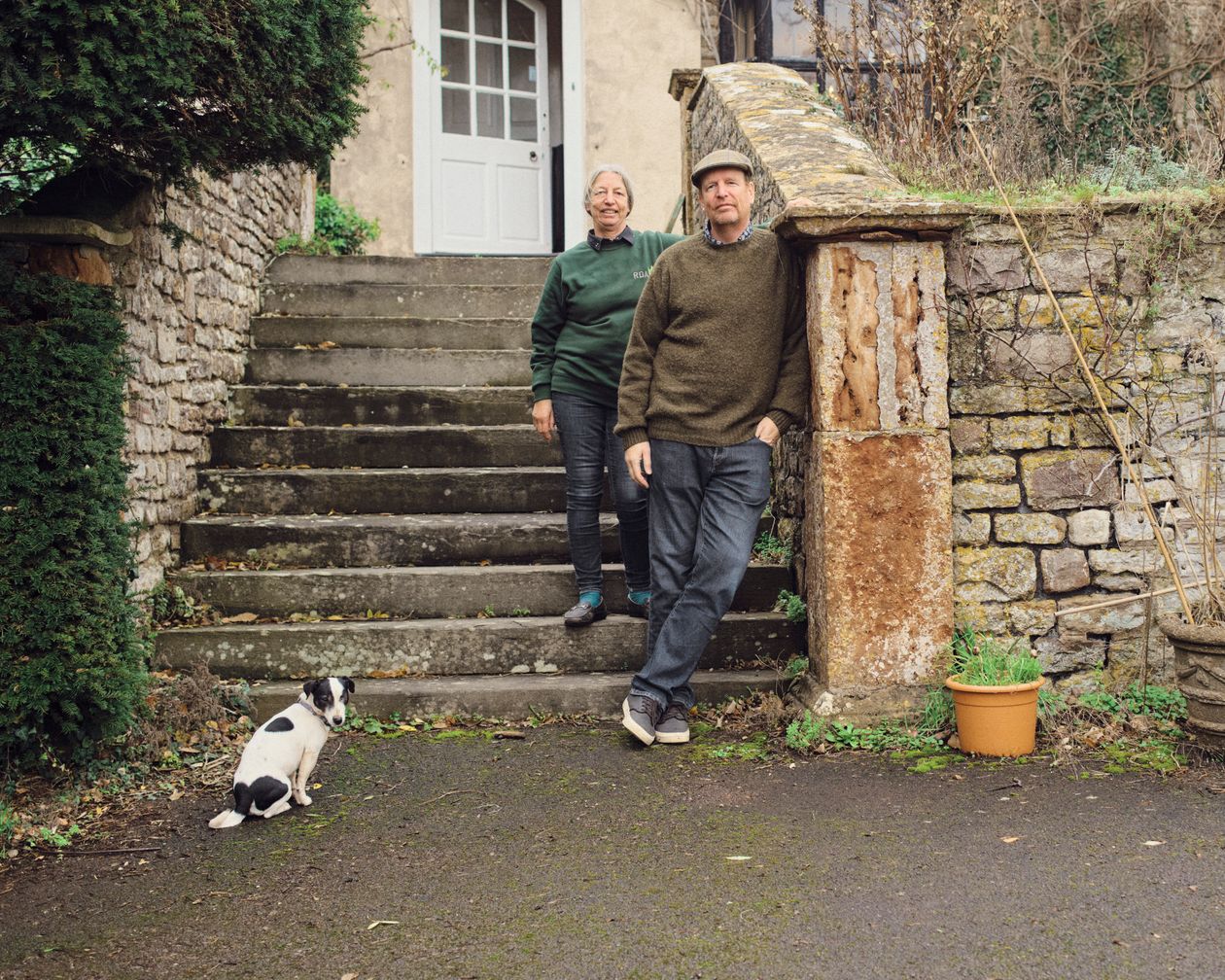
Matthew Clarke and his sister Bridget Mackwood at Gatcombe Court
Photo:
Josh Adam Jones for The Wall Street Journal
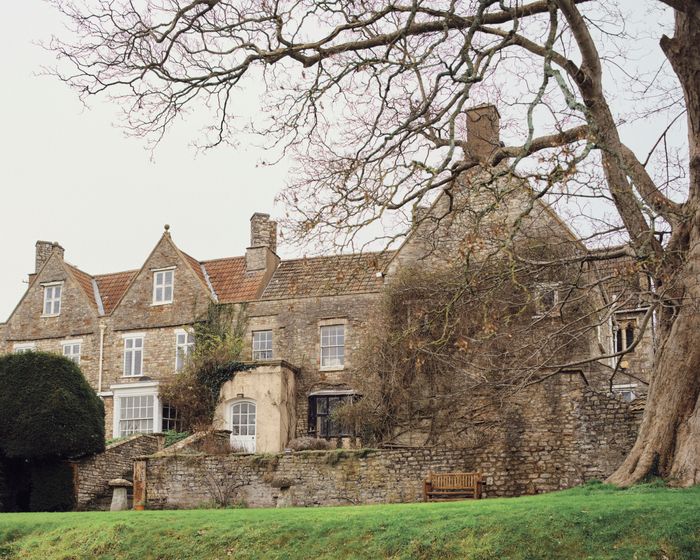
Gatcombe Court has 10 bedrooms, four bathrooms and measures 8,211 square feet. It is listed with Knight Frank with a guide price of $2.45 million.
Photo:
Josh Adam Jones for The Wall Street Journal
“When friends used to come and stay they would always freak out because it is a very noisy house,” he explained. “It creaks and rattles, the pipes all make a racket, there are all sorts of bumps and crashes. There has been a house here since Roman times. It is the sort of place where if you dig you will find old coins and all sorts of things.”
Mr. Clarke, 59, now lives near the university city of Oxford, and is a corporate financier. His father died in 2003. “He was born and died in the same room of the same house, which is quite unusual,” he said. His mother stayed on until early 2022 when ill health meant she needed to move into a nursing home.
Mr. Clarke’s sister and her husband are now living at the property, but the arrangement is only temporary. Private-care home costs in the U.K. are high and getting higher. In the 12 months ended August 2022, they increased by 22% to $1,164 per week, according to figures from the healthcare consulting firm LaingBuisson.
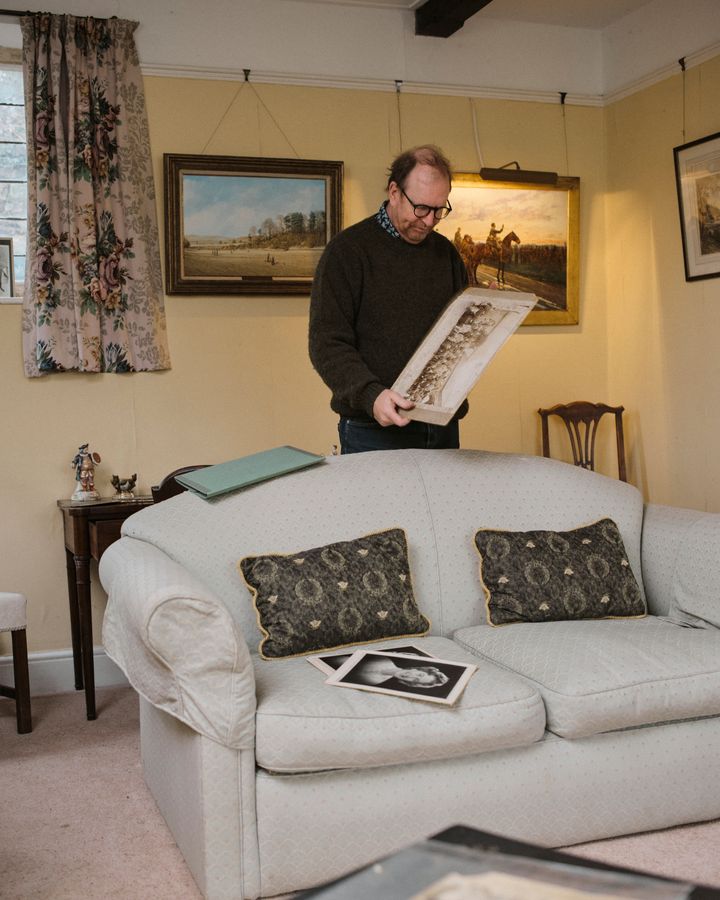

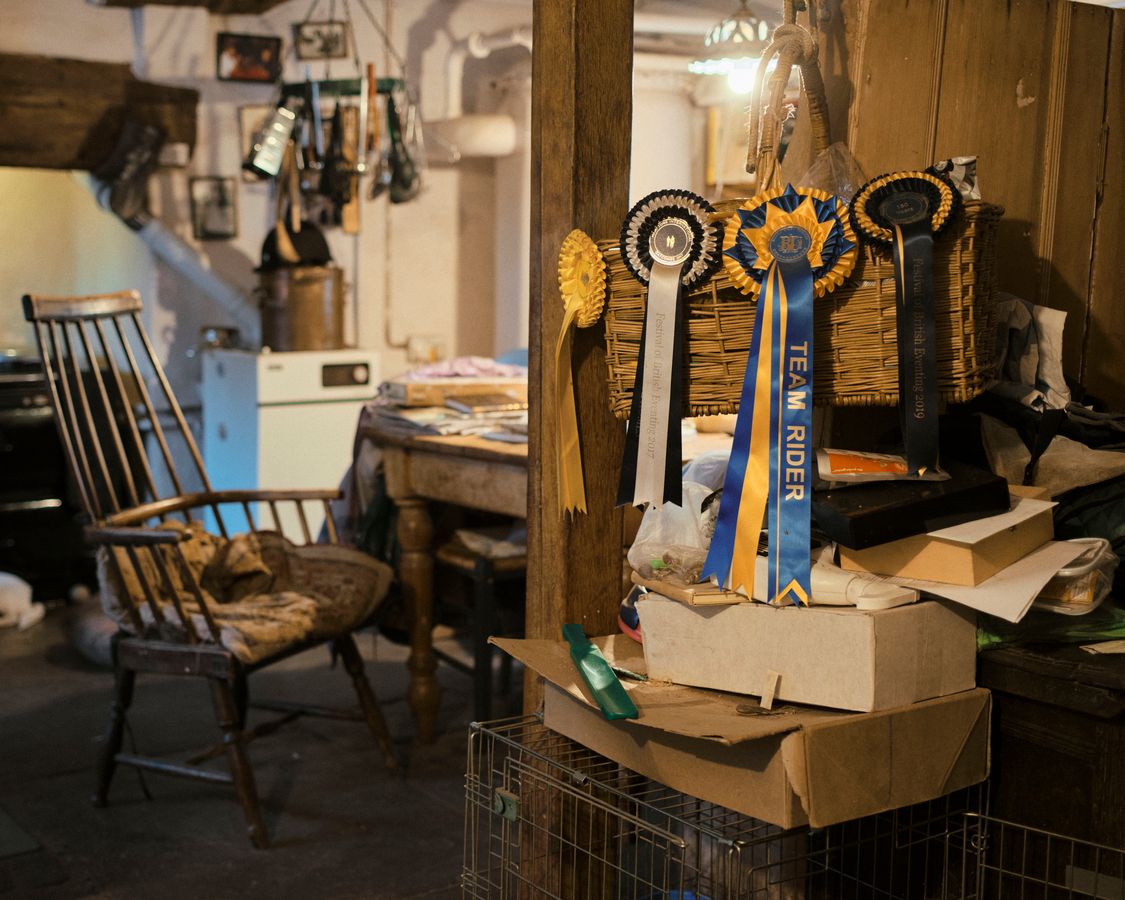
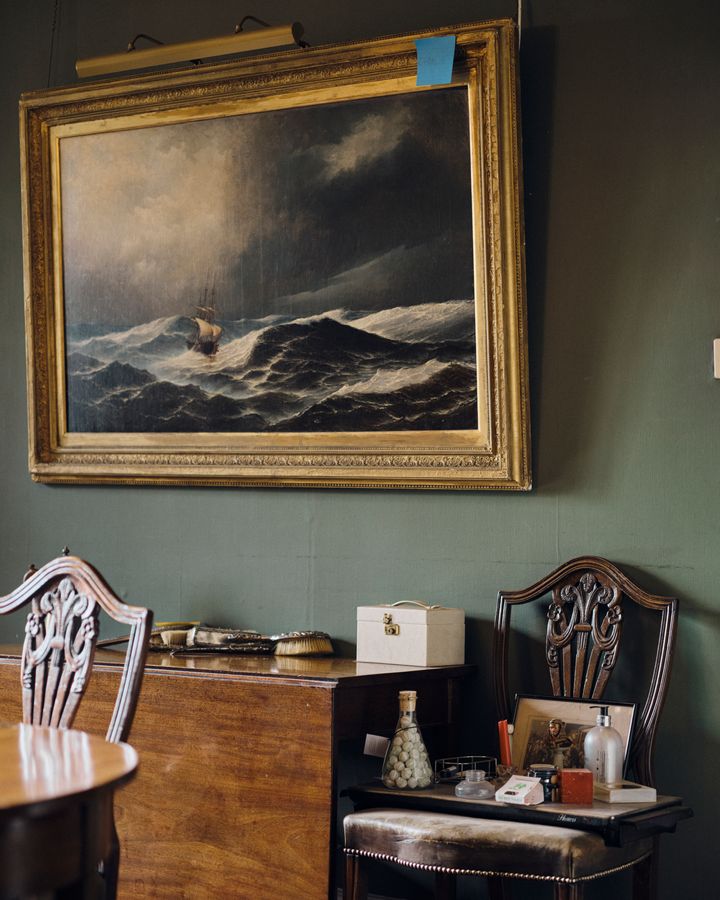
Matthew Clarke sifts through family memorabilia at Gatcombe Court. The house is filled with photographs and artwork collected by family members who have lived there since 1922. Josh Adam Jones for The Wall Street Journal (4)
Mr. Clarke said selling Gatcombe Court will help cover his mother’s care costs, which come in at around $1,350 per week.
The 10-bedroom, four-bathroom, 8,211-square-foot house, which comes with 4.5 acres, is listed with Knight Frank with a guide price of $2.45 million. His parents offset the cost of running the house, said Mr. Clarke, partly by renting out the two converted barns and three small cottages that come with it.
“My father was a great character, and very much the pater familias, and I think that the idea of selling the house after he died would have been very difficult,” said Mr. Clarke. “But that was almost 20 years ago and it has become much easier to accept that the house should be sold. There is nobody [in the family] who is going to move into it and populate it in the way it needs to be populated. It is very much a family house.”
Mr. Clarke’s parents’ former bedroom at Gatcombe Court
Josh Adam Jones for The Wall Street Journal
The drawing room
Josh Adam Jones for The Wall Street Journal
Matthew Clarke in the drawing room of Gatcombe Court, bought by his grandfather and passed down through the family.
Josh Adam Jones for The Wall Street Journal
Mr. Clarke says some parts of the home date to the 13th century.
Josh Adam Jones for The Wall Street Journal
The property has a swimming pool.
Josh Adam Jones for The Wall Street Journal
Woodside Cottage has been in Denise and David Cooper’s family since the middle of the 19th century. Mr. Cooper’s great-great-grandfather had founded W James & Sons, a building company and blacksmiths. The company also had a sideline as a funeral director at the time when it was common practice for people with carpentry skills to also make coffins and organize services.
Mr. Cooper’s great-grandfather bought the cottage in the late 1800s to be used as premises for the business. Mr. Cooper, now 67, joined the firm after leaving high school, and as a reward for his long service, his grandfather bequeathed him the cottage in the late 1990s.
He and Mrs. Cooper, 60, who ran a small farm before she retired, raised their daughter in the home and have spent the past two decades renovating the three-bedroom, three-bathroom 1,680-square-foot thatched cottage. “It is perfect,” said Mrs. Cooper.
Woodside Cottage
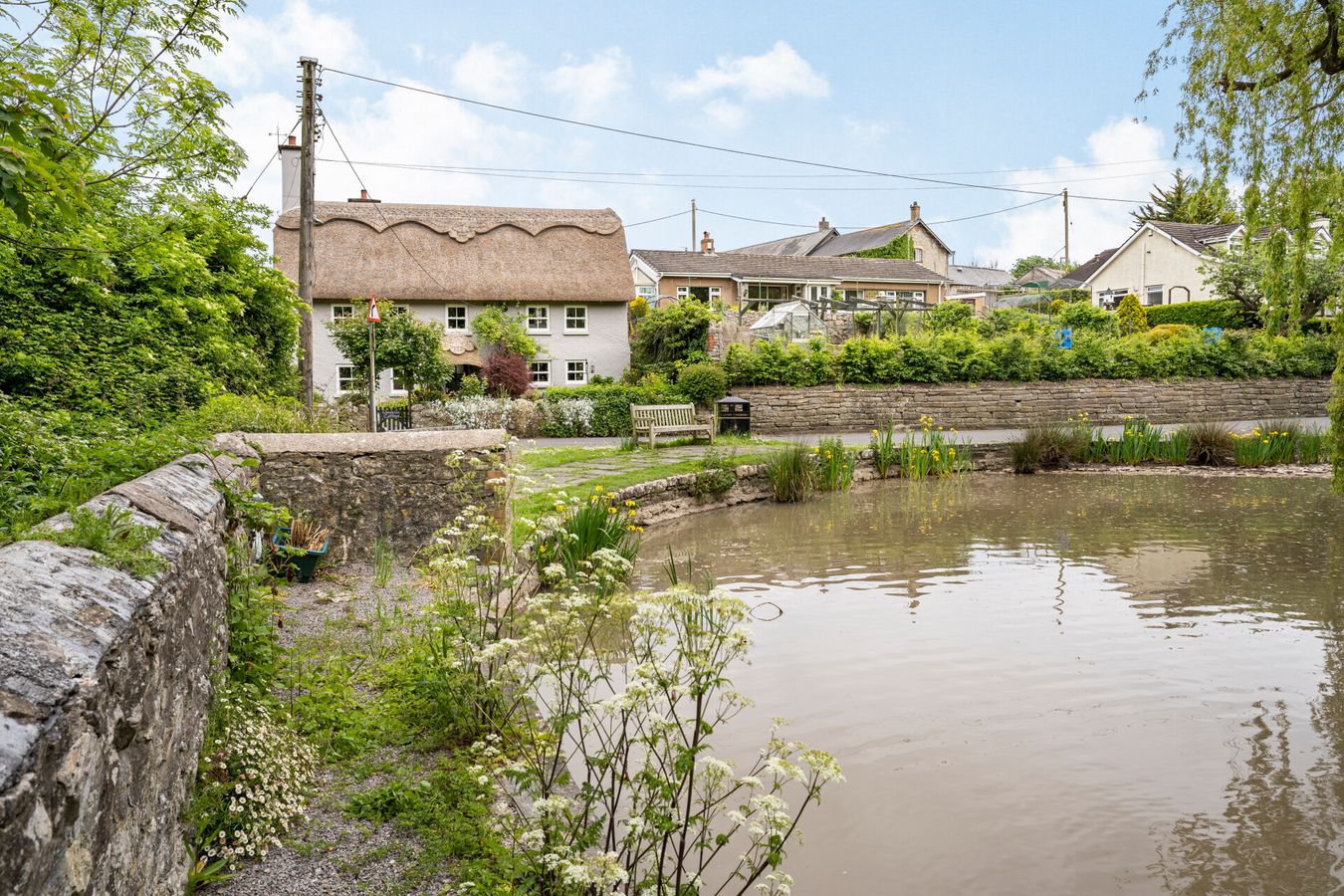
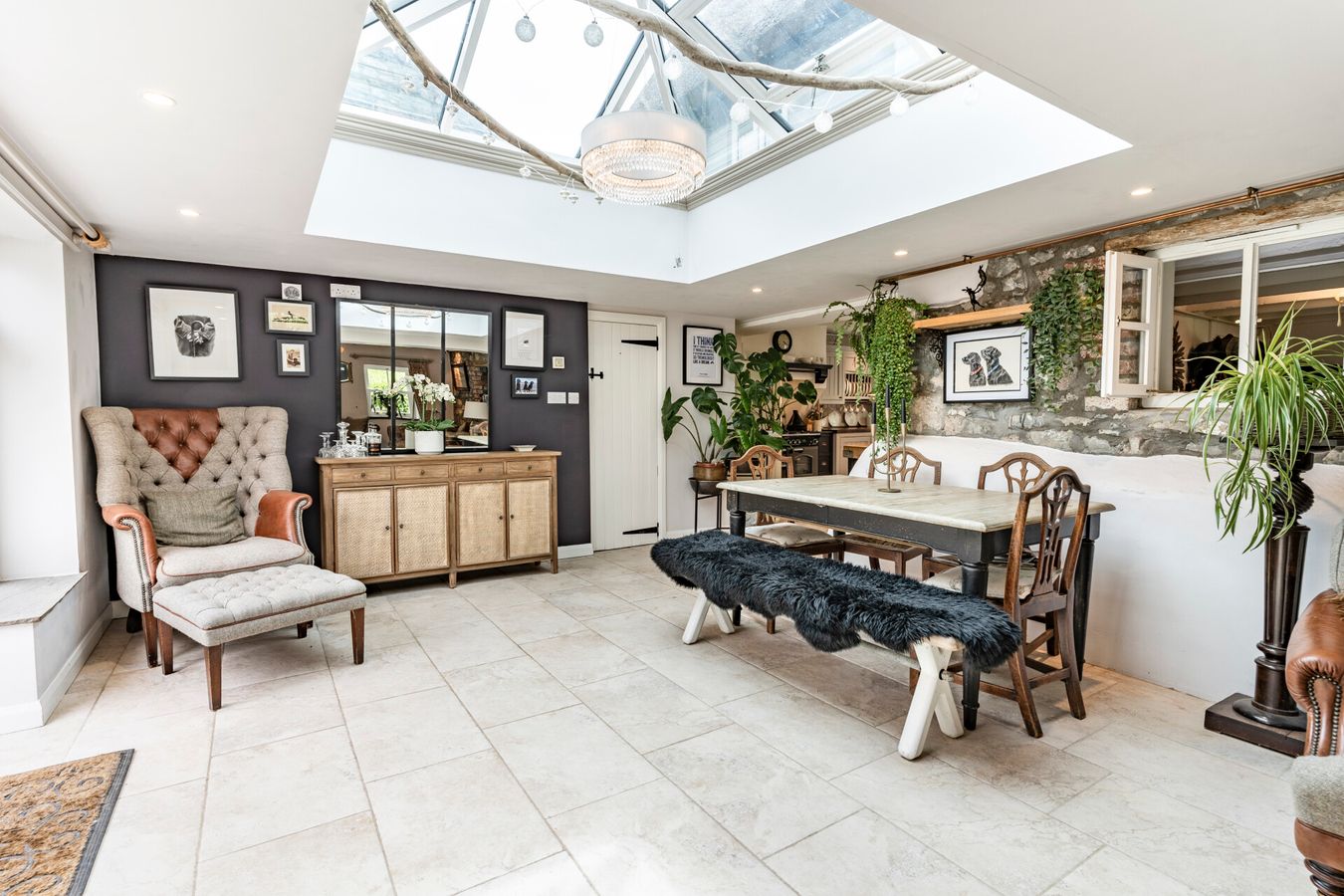
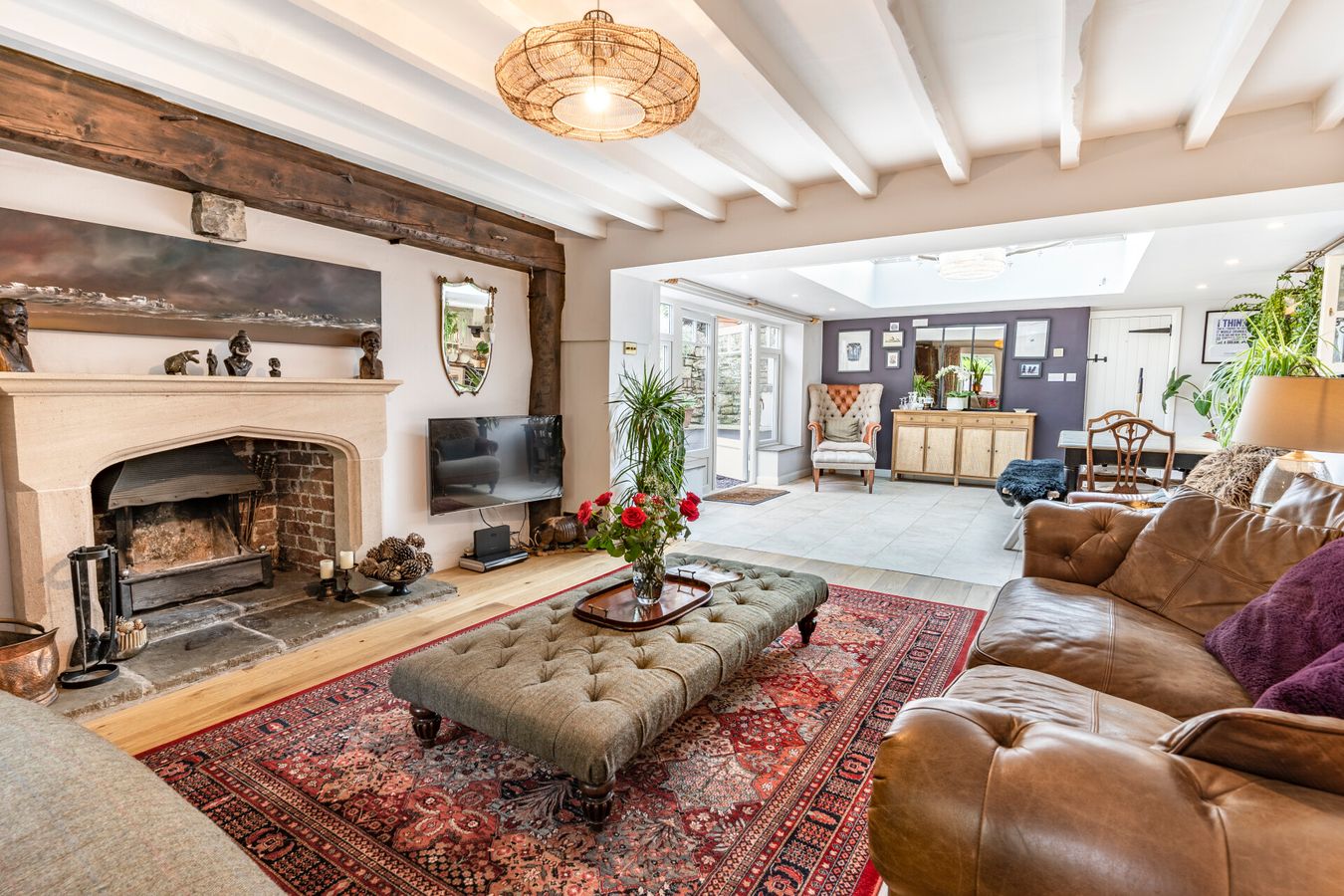
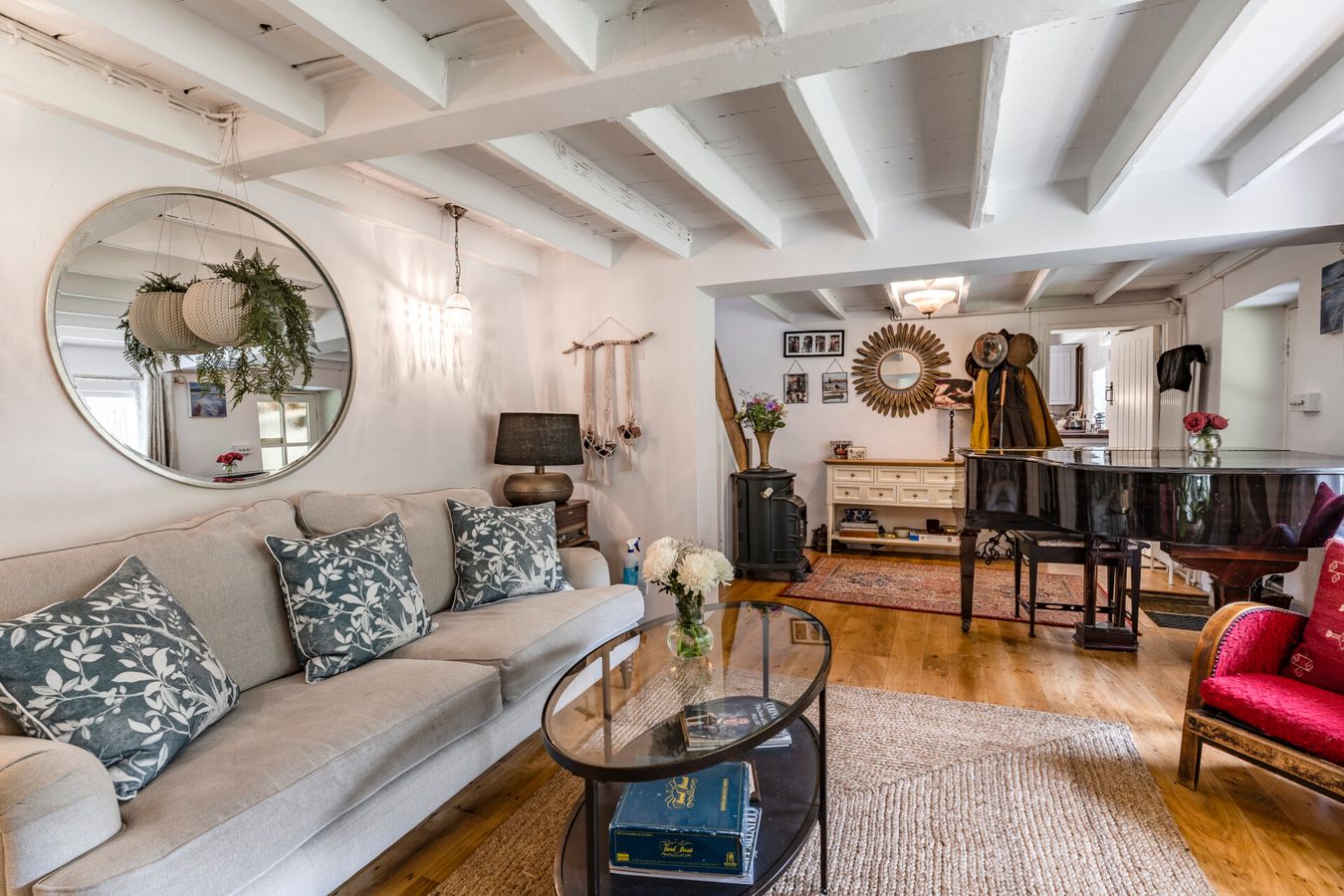
Woodside Cottage has been in the family of Denise and David Cooper since the middle of the 19th century and the couple have spent some two decades renovating it. Fine & Country (4)
The cottage is in the village of Fonmon, around 16 miles from Cardiff, the capital of Wales.
Until his death in August 2022, Mr. Cooper’s father had owned and occupied the cottage across the street. Mr. Cooper has now decided he would like to move into his father’s house, because of his sentimental attachment to what had once been his childhood home. Unfortunately, this means selling Woodside Cottage. It is listed with Fine & Country with a guide price of $920,175.
“We have wavered many times, because the cottage is exactly how we want it now, but selling it means we can pay David’s sister for her share of their dad’s house and pay to renovate it. It is in quite a rundown state,” said Mrs. Cooper.
“We are very emotionally invested in the cottage, but my husband is more emotionally invested in the family home. It will be hard to leave, but I think we are ready for our final big challenge.”
Corrections & Amplifications
A photo caption in an earlier version of this article incorrectly identified Tushingham Hall as Gatcombe Court. (Corrected on Jan. 20.)
Copyright ©2022 Dow Jones & Company, Inc. All Rights Reserved. 87990cbe856818d5eddac44c7b1cdeb8











